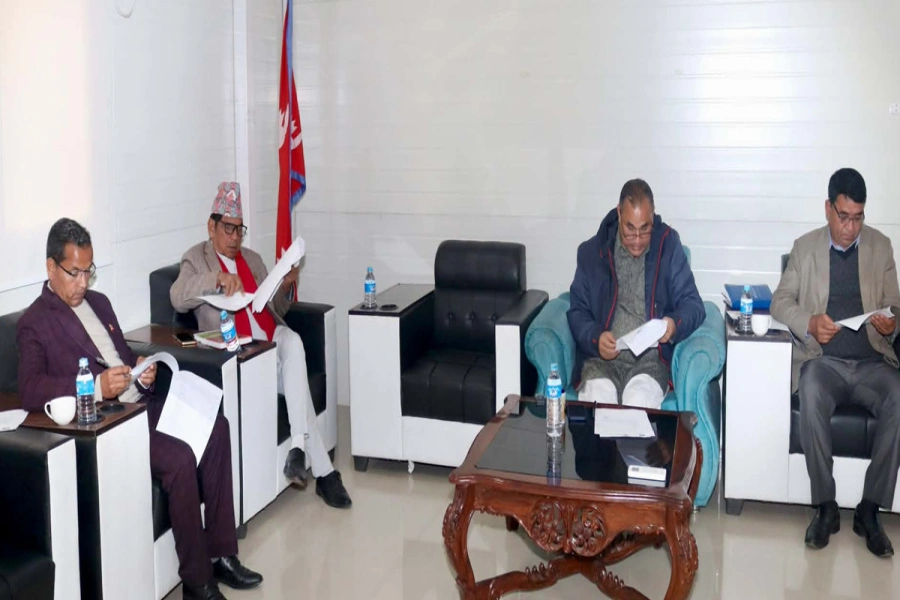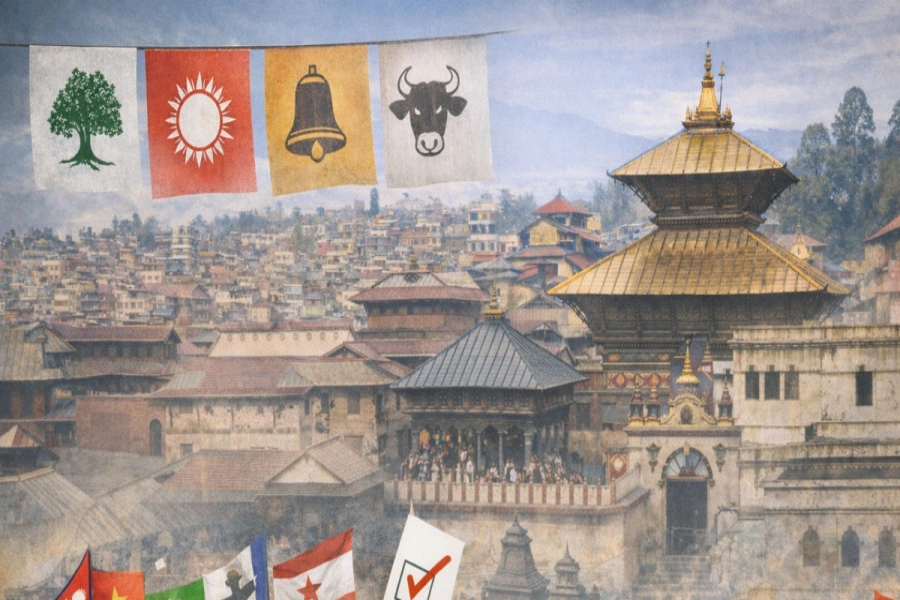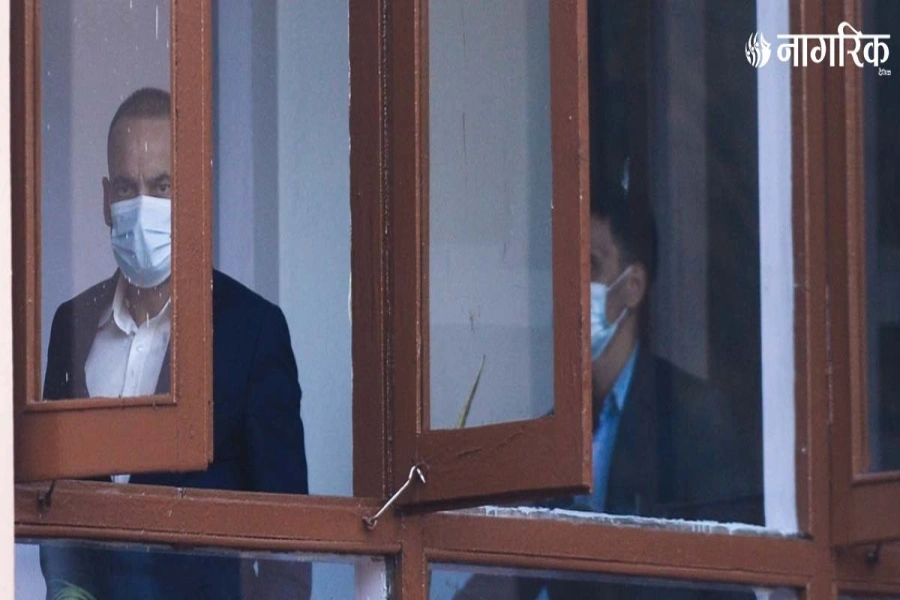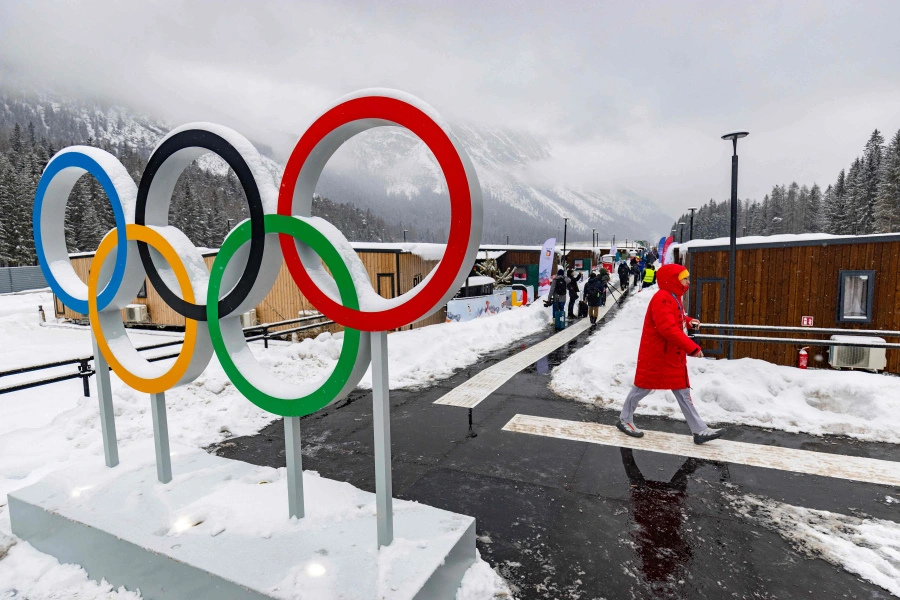Imagine the wonder if everyone follows the road rules: There will be less accidents, many lives could be saved.
Insanity and ignorance are two different things though both can be used to refer to idiocy. In politics, insanity is when a leader stands against the need of the time and aspiration of people. Ignorance is when the leaders make wrong decisions because they have no knowledge of the issues they are making decisions on.
Ignorance may be pardonable, insanity may not be. In Nepal, both insanity and ignorance are at play, if you examine the conducts of the government authorities and the citizens. Let me focus on citizens’ conducts by taking some cases of traffic rule violation.
Man City's Sane could resume training next week - Guardiola

Take our compliance of the traffic rules. There are traffic lights and traffic symbols to ensure the safety of the drivers and pedestrians. Thus the pedestrians are supposed to walk along the pavements and the drivers are supposed to follow the lane rules and light rules. Motor drivers are always supposed to let the pedestrians go first, with particular care for senior citizens, persons with disabilities, women and children. You are not supposed to talk on the cell phones while driving or while crossing the roads.
Truly, how many of us follow these rules?
Majority of us, neither rule enforcers nor rule followers, simply do not care. The ruler enforcers, the police, seem to be concerned about enforcing the rule of the road during the day time, mostly during office hours. Watch out in the morning or the evening, you will see people crossing the roads from anywhere, you see drivers violating the lane rules, and strangely even traffic lights are off, as if nobody needs to follow the rules in non-office hours. Why cannot the authorities enforce such rules for all time? And why do the people, for whose safety there are such rules in the first place, not care to follow them? Is this insanity or ignorance?
We have Motor Vehicles and Transport Management Rules and Motor Vehicles and Transport Management Act in place to ensure safety of the drivers and the pedestrians. But nobody cares to enforce them, nobody cares to follow them.
In the Western countries, including some Asian nations, people strictly follow the rules of the road. A Nepali, if he ever goes to these countries, will follow those rules without complaining. You will rarely find a Nepali spitting or throwing chocolate and tobacco wrappers on the streets in New York's Times Square, for example. The same man will resume his Nepali habit the moment he lands in Kathmandu and will be the one to litter the streets in Durbar Marg.
We tend to park our vehicles wherever we find the free space—by the side of the road, in front of a shopping mall or at the hospital gates. We cross the roads from under the sky bridges, jump over the fences and go across, even vehicles run along the restricted areas. The police on duty can punish such people but they remain unaware about such misconducts or, in most cases, police pretend ignorance thinking that this is not offense worth the punishment. How can the administration allow the people to violate the rules? How can the people put their own lives in danger just to break the law? This is insane.
In my opinion, when it comes to making people follow the rules of the road, which they must follow without having the authorities to tell them to, the authorities have to be really strict and unforgiving. People always find some or other excuses to violate the laws and they may forward ignorance as excuse. No such excuses should be entertained.
When it comes to thing like maintaining order on the road, strict implementation of law can be instrumental in awakening people from ignorance and insanity they have pushed themselves into for a long time. Imagine the wonder if everyone follows the road rules: There will be less accidents, many lives will be saved.





































